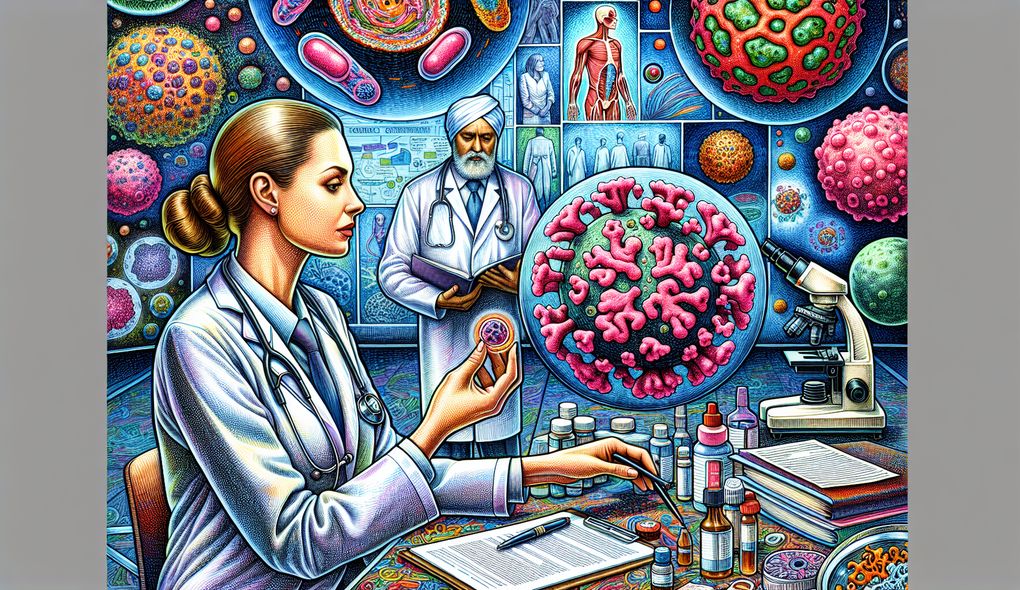How do you prioritize your workload and manage multiple tasks?
INTERMEDIATE LEVEL

Sample answer to the question:
I prioritize my workload by first identifying the urgency and importance of each task. I create a to-do list and determine the deadlines for each task. Then, I break down larger tasks into smaller, manageable steps. I also consider the resources required for each task and allocate my time accordingly. To manage multiple tasks, I utilize time-management techniques such as the Pomodoro Technique, where I work on a task for a set amount of time and then take short breaks. I also ensure regular communication with team members to stay updated on task priorities and timelines.
Here is a more solid answer:
As a medical oncologist, I understand the importance of prioritizing my workload and effectively managing multiple tasks. I prioritize based on the urgency and criticality of each patient's needs. For instance, if a patient requires immediate intervention or their condition is deteriorating rapidly, I prioritize their care above other tasks. I also consider the complexity and impact of each task on patient outcomes. To manage multiple tasks, I create a comprehensive schedule, breaking down tasks into smaller subtasks and setting realistic deadlines. I use electronic health record (EHR) systems to track and manage patient information, ensuring no critical data is missed. Additionally, I regularly communicate and collaborate with the interdisciplinary team to coordinate patient care and align priorities. This ensures that everyone is on the same page and tasks are efficiently managed.
Why is this a more solid answer?
The solid answer provides more specific details related to medical oncology and the interdisciplinary environment. It includes examples of how the candidate prioritizes tasks based on patient needs and emphasizes the use of electronic health record (EHR) systems to ensure efficient task management. However, it can be further improved by including specific examples of how the candidate has successfully managed multiple tasks in the past.
An example of a exceptional answer:
As a dedicated medical oncologist, prioritizing my workload and managing multiple tasks is crucial for providing optimal patient care. When faced with multiple tasks, I first assess the urgency and impact of each task on patient outcomes. For example, if a patient requires immediate chemotherapy due to disease progression, I prioritize their treatment over non-urgent administrative tasks. To effectively manage multiple tasks, I utilize a combination of time-management techniques and technological tools. I break down complex tasks into smaller, achievable goals and set clear deadlines. By using electronic health record (EHR) systems, I efficiently track patient information, treatment plans, and follow-up appointments, ensuring no critical details are overlooked. Furthermore, I actively communicate with the multidisciplinary team, attending regular meetings and discussing patient updates to ensure coordinated care. By collaborating closely with nurses, surgeons, and radiologists, we streamline workflows, address potential bottlenecks, and enhance patient outcomes. Overall, my ability to prioritize and manage multiple tasks comes from my experience as a medical oncologist and my commitment to delivering patient-centered care.
Why is this an exceptional answer?
The exceptional answer adds more specific examples and demonstrates a deep understanding of the role of a medical oncologist in prioritizing and managing tasks. It highlights the candidate's ability to assess urgency and impact on patient outcomes when prioritizing tasks and the use of EHR systems to efficiently track patient information. The answer also emphasizes the importance of collaboration and communication with the interdisciplinary team. Additionally, it highlights the candidate's experience and commitment to patient-centered care. However, it can be further improved by including quantifiable achievements related to task management.
How to prepare for this question:
- Familiarize yourself with time-management techniques such as the Pomodoro Technique or Eisenhower Matrix.
- Reflect on past experiences where you had to prioritize tasks in a high-stress environment and manage multiple responsibilities.
- Be prepared to provide specific examples of how you effectively managed your workload and tasks as a medical oncologist.
- Highlight any experience or knowledge of electronic health record (EHR) systems and their role in task management.
What are interviewers evaluating with this question?
- Time management
- Prioritization
- Task management
- Communication

